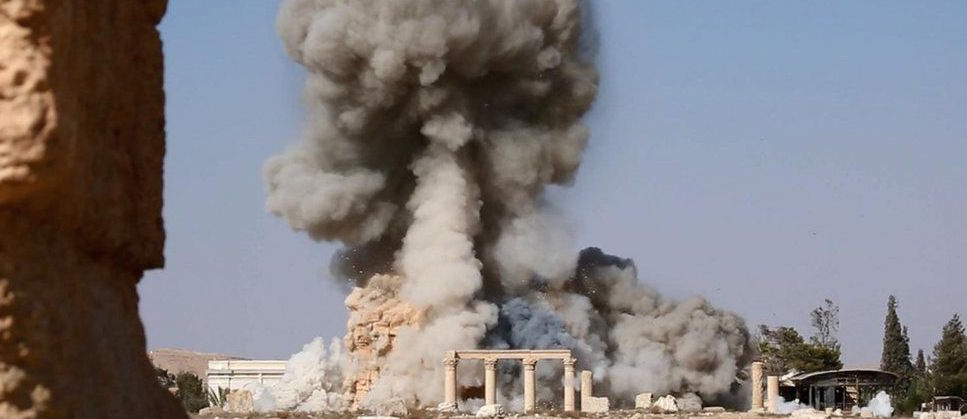Workshop on The Protection of Cultural Artefacts in War
Stockholm Centre for the Ethics of War and Peace and the Open University
Langholmen Hotel, Stockholm
14th June, 2016
Deadline for registration: Friday 3rd June.
The recent and ongoing conflicts in the Middle East – most notably in Syria and Iraq, but also elsewhere – have wreaked havoc on some of the world’s most important cultural sites and artefacts. This workshop aims to shed light on three central questions. First, why does cultural heritage matter? Second, how ought military forces to weigh the value of cultural sites and objects in their strategic deliberations? Third, is it permissible to use military force specifically to protect aspects of cultural heritage? In particular, is it permissible to defend these goods at the risk of endangering soldiers’ lives, and – given our limited resources – at the risk of failing to protect lives?
Answering these questions requires developing accounts both of what counts as part of our cultural heritage, and why such things are valuable. The UNESCO list of World Heritage Sites includes both man-made artefacts and sites of outstanding natural beauty or ecological or historical significance. Are these things valuable in different ways, and to different groups? Why are they valuable at all? What does it mean to describe something as ‘irreplaceable’, and how significant is irreplaceability in assessing value?
Understanding how and why cultural sites are valuable can help us see whether and how we can weigh the protection of cultural sites against the other harms of war. It’s not clear how help much our existing principles guiding the treatment of civilians and civilian objects in war will be here. For example, the moral reasoning we typically employ to explain the impermissibility of intentionally targeting civilians doesn’t obviously apply to the intentional targeting of objects. The useful harming of civilians – for example, in order to create terror – seems particularly objectionable because it disregards their rights not to be used as a means along with their rights not to be killed. But the useful destruction of an object doesn’t seem to be open to similar criticism – at least, it cannot be criticised on these rights-based grounds. Nor does the destruction of cultural sites typically disrupt civilian life in the way that, say, destroying transport or communications networks does. More generally, we might wonder whether it’s morally objectionable to care about the fate of objects in the face of such widespread human suffering.
This workshop will bring together philosophers, archaeologists, and international lawyers in an attempt to answer these and other questions. It is the first of a series of events aimed at developing robust theoretical accounts of cultural heritage within the context of the ethics of war. Subsequent events will directly engage with NGOs, military practitioners, and policymakers. Attendance at the conference is free, including lunch, dinner and refreshments. To register, please email stockholmcentre@gmail.com.
Schedule
09.30 – 10.45: Jonathan Peterson (Philosophy, Loyola University at New Orleans)
“Just War and the Protection of Cultural Heritage”
10.45 – 11.15: Coffee
11.15 – 12.30: Jann Kleffner (Swedish Defence College)
“Protection and Loss of Protection of Cultural Property During Armed Conflict: The International Legal Perspective”
12.30 – 13.30: Lunch
13.30 – 14.45: Dacia Viejo Rose (Archaeology, Cambridge University)
“Cultural Violence/Violence against Culture: Theory, Practice, and Implications”
14.55 – 16.10: Andreas Pantazatos (Philosophy, Durham)
“Stewardship between rubble and refugees: A closer look at the aftermath of the destruction of cultural heritage in Syria”
16.10 – 16.40: Coffee
16.40 – 17.55: Derek Matravers (Philosophy, The Open University)
“Do we have an overriding obligation to preserve life over heritage?”
There will be a hosted dinner for all participants at Langholmen Hotel.



